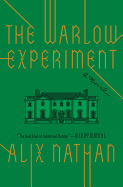
| Publisher: | Doubleday | |
| Genre: | General, Literary, Gothic, Fiction, Historical | |
| ISBN: | 9780385545334 | |
| Pub Date: | August 2019 | |
| Price: | $26.95 |
| Starred | Fiction |
by Alix Nathan
The year is 1793 and Herbert Powyss, gentleman farmer and amateur botanist, has hit upon an idea for an experiment to establish him as a true scientist: for seven years, a volunteer will live in complete isolation in a set of apartments two stories below his manor. This man will be given the same food that Powyss is served, with books and writing material to record his experience. Upon the completion of the experiment, he will receive £50 a year for the rest of his life. The only person who answers Powyss's advertisement is John Warlow, a laborer with a wife and children to support.
From a passing reference in a historical source about an actual experiment of this kind, Alix Nathan (The Flight of Sarah Battle) has constructed a fable about power. Warlow is trapped in an experiment for which he was never well suited, being semi-literate and unable to express himself in the journal, but which only he was desperate enough to accept. The absurdity of expecting him to entertain himself with Robinson Crusoe and a chamber organ is emphasized by every passage written in his point of view, effectively conveyed in halting, stunted language. Meanwhile, Powyss struggles with his unusual position of responsibility for Warlow's wife and family. The imbalance between these two and the effect it has on both could have been a book on its own, but Nathan puts it into further context as the ideas of the Enlightenment and the revolution in France reach the servants at the manor. The result turns The Warlow Experiment into a study of a microcosm in which an imbalance of power has devastating effects on both the person above and below, but infinitely worse for the latter. --Kristen Allen-Vogel, information services librarian at Dayton Metro Library
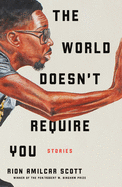
| Publisher: | Liveright | |
| Genre: | Short Stories (single author), Fiction | |
| ISBN: | 9781631495380 | |
| Pub Date: | August 2019 | |
| Price: | $25.95 |
| Fiction |
by Rion Amilcar Scott
Cross River, Md., is a fictional town with an exceptional claim: it was founded during the Great Insurrection, the only successful slave revolt in the United States. While its residents experience less hostility than they would in neighboring towns, the legacy of slavery has manifested itself in ways that make Cross Riverians unlike any other characters in literature.
In The World Doesn't Require You, Rion Amilcar Scott presents a collection of short stories and a novella that defy convention. Readers meet David, the least favored of God's sons, whose efforts to win his father's favor with a band devoted to the "Cross River sound" fall flat. There is Tyrone, a Ph.D. candidate whose dissertation on a seemingly innocent prank is part of Cross River's origin story. But the prank holds dire consequences when he and his friend Deez undertake it today. Then, Scott whisks into the future, where Jim is one of the last Robotic Personal Helpers, and whose Master gave him "the appearance of a minstrel. A blackface clown in a top hat and tails." The pinnacle of Scott's ambition is the novella Special Topics in Loneliness Studies, in which the narrator, a professor at Freedman's University, convinces his colleague Reggie to bare his soul in a year-long class--an effort to take down both Reggie and the university itself.
Cross River is a place steeped in mythology, where men are seduced by fantastical water-women and early founders become legends. While Cross River is fictional and magical realism abounds, it speaks volumes about the world of today. --Frank Brasile, librarian
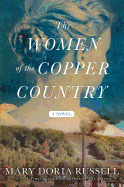
| Publisher: | Atria | |
| Genre: | Women, General, Biographical, Fiction, Historical | |
| ISBN: | 9781982109585 | |
| Pub Date: | August 2019 | |
| Price: | $27 |
| Fiction |
by Mary Doria Russell
"Labor protests" conjures sooty-faced coal miners, Pullman porters or steelworkers. But Mary Doria Russell's (The Sparrow; Epitaph) seventh novel illuminates labor heroes history often neglects: the women who fought for their husbands, fathers and sons.
The Women of the Copper Country are led by Annie Clements, head of the Women's Auxiliary, Local 15, of the Western Federation of Miners in Calumet, Mich. In this Upper Peninsula city near Lake Superior, the world's largest copper mine boomed as fabulously wealthy owners exploited immigrant workers, numbering 15,000 men in 1913. Then a nine-month strike and a community tragedy forever altered the company town. Annie attended her first miner's funeral alone at nine (a thousand or more by now, she muses at 25) because the new immigrant had no family and "deserved some tears."
"Somebody should" became "Annie will," people said of the woman whose heart matched her six-foot-one frame. In spite of her husband's anti-union stance, Annie's leadership inspires the workers, comforts their families and draws support from the national Federation, which sends organizer Charlie Miller to Calumet. Photographer Michael Sweeney comes, too, because "people know unfairness and injustice when they see it." While 9,000 miners vote to strike for safety and fair pay, 5,000 vote no, but Annie, Charlie and Michael stand up to the mining boss, hired thugs and the state militia for nine frigid, brutal months.
Meanwhile, historic figures lend support: Mother Jones comes to Calumet, Clarence Darrow offers his expertise. Russell's meticulous research frames a gripping novel of rich characters in this story of a contentious era, rife with ethnic prejudice, that feels chillingly current. --Cheryl Krocker McKeon, manager, Book Passage, San Francisco
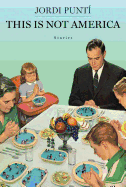
| Publisher: | Atria | |
| Genre: | Short Stories (single author), Humorous, General, Literary, Fiction | |
| ISBN: | 9781982104719 | |
| Pub Date: | July 2019 | |
| Price: | $25 |
| Fiction |
by Jordi Puntí, trans. by Julie Wark
This Is Not America collects nine short stories, all previously published, from Catalonian author Jordi Puntí, translated by Julie Wark. Puntí's stories cover a range of characters, voices and situations, all exploring themes of loneliness and reflection.
A man walks through Barcelona in "Vertical," tracing his dead lover's name with his steps. He's forgetting her face, which is "gently fading away, a vapory cloud of smoke." In "Blinker," a man recalls his years hitchhiking, carrying a briefcase with contents never revealed. Conversing with drivers gives "the sensation that it all came from an earlier intimacy," yet he knows he's not connected with anyone, and he's "turned into an urban legend." "Kidney," about a man whose brother is requesting one of his, has a distinctly O. Henry feel. "Patience" is a piece of autofiction based on the author's participation in a literary project where he visited strangers' homes in order to write about the experience. "Seven Days on the Love Boat" finds a man on a cruise, separated from his wife. Feeling homesick, he considers that "the passage of time burns memories, too, first turning them into dry parchment, after which the combustion starts at the corners, but at least it grants us the illusion of experience."
These stories show Puntí's gift for creating distinctive voices and backgrounds. His characters search for self-acceptance more than they ever actually change. With writing that's smooth and full, This Is Not America showcases the humanity in people who might otherwise be overlooked. --Cindy Pauldine, bookseller, the river's end bookstore, Oswego, N.Y.
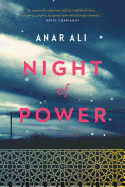
| Publisher: | Viking | |
| Genre: | Cultural Heritage, Family Life, General, Political, Fiction | |
| ISBN: | 9780670064267 | |
| Pub Date: | August 2019 | |
| Price: | $18.95 |
| Fiction |
by Anar Ali
When dictator Idi Amin decrees all South Asian people in Uganda must relinquish their possessions and exit the country or be forcibly removed, Mansoor Visram, his wife, Layla, and their son, Ashif--a well-to-do family--choose Canada as the place to begin their lives anew.
While Layla clings to her religion in their adopted country, Mansoor wonders who needs faith when you have business acumen. After working menial jobs, he buys a couple of businesses. He makes great sacrifices to ensure the success of each venture, but financial stability remains elusive, driving a wedge between him and his family. Frustrations over finances cause a generations-old pattern of domestic violence to emerge.
Ashif leaves home for a job to save his family while Layla sells home cooking mixed with tears, and Mansoor wanders ghostlike in a domicile where he and his wife no longer share a bed. Everything comes to a head during a Night of Power, a midnight-to-dawn prayer event at a temple Layla attends. Will tremendous loss fix what years of noncommunication has torn asunder?
In Night of Power, Anar Ali writes a heartbreaking story of dysfunctional family dynamics reminiscent of Arthur Miller's Death of a Salesman. The hapless Mansoor echoes Willy Loman's overabundance of confidence in his and his son's eminent success, positive his only impediment lies in the inability of others to see his vision. Mansoor's cruel father gnaws at him in both mental and self-imposed physical manifestations. Just as Mansoor aspired to be nothing like his father but cannot thwart learned behavior, Ashif struggles with the same traits taking hold of his own life in this potent debut novel. --Paul Dinh-McCrillis, freelance reviewer
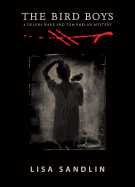
| Publisher: | Cinco Puntos Press | |
| Genre: | Private Investigators, Mystery & Detective, Police & Law Enforcement, Romance, Hard-Boiled, Fiction, Women Sleuths | |
| ISBN: | 9781947627130 | |
| Pub Date: | August 2019 | |
| Price: | $16.95 |
| Mystery & Thriller |
by Lisa Sandlin
Tom Phelan is painting over the remains of a bloody crime scene in his office as the second Delpha Wade and Tom Phelan mystery begins. The Bird Boys picks up where Lisa Sandlin's debut, The Do-Right, left off, with Delpha bloodied and under investigation for another act of violence. Vietnam vet Tom is six months into his private investigation practice. Delpha is even more tragically layered, lucky to get the secretarial gig following her release from Gatesville prison after serving 14 years for killing a man.
Xavier Bell hires Tom to find his estranged brother, with little more to go on than ancient family history and a 40-year-old photograph. Bell's strange story gets more questionable as Delpha and Tom pry into his past. The Bell investigation and a few minor cases keep things hopping, but the highlights are Sandlin's characters and their constant striving and growth. Delpha is sharp and resourceful and, as Tom's reliance on her grows, so does the trust each gives so reluctantly.
Sandlin's writing is Chandler-esque, her descriptions divine ("a comet's-tail of trouble," "a hem that would ride up to her crank case if she sat down"). Set in 1970s Beaumont, Tex., the surroundings are wonderfully suffused with Watergate, pay phones, Selectric typewriters and a little Cajun flavor. With phrasing to linger over but pacing that presses forward, The Bird Boys will have readers racing to grab the first book and crossing fingers for more of the dynamite characters inhabiting this noir series. --Lauren O'Brien of Malcolm Avenue Review
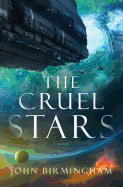
| Publisher: | Del Rey | |
| Genre: | Space Opera, Fiction, Action & Adventure, Science Fiction, Military | |
| ISBN: | 9780399593314 | |
| Pub Date: | August 2019 | |
| Price: | $28 |
| Science Fiction & Fantasy |
by John Birmingham
Far-future humanity spans the galaxy in corporate monarchies, slaving empires and other polities of variable egalitarianism. These vast distances are spanned by instant wormhole-based communications and ships with more time-consuming warp drives. Citizens of means edit their biological makeups, graft cybernetics to their brains, even remotely back up their consciousnesses and download into new bodies, effectively achieving immortality. But this transhumanism is not agreeable to all. Centuries ago, a fanatical faction of racial purists calling itself the Human Republic attempted to annihilate anyone with body modifications. The Sturm, as the rest of mankind called them, were defeated and exiled into the unknown reaches of Dark Space.
The Cruel Stars by John Birmingham follows five characters through a catastrophic Sturm invasion from Dark Space, which begins with a crippling virus delivered through humanity's communications network and neural implants. Officer Lucinda Hardy becomes commander of the Royal Armadalen Navy's last surviving ship when her captain and XO are turned into slobbering cannibals. Booker3, a jailed freedom fighter on the verge of being deleted, is spared that fate by a Sturm attack on his habitat. Alessia, a young princess of the Montanblanc Corporation, must go on the run when her planet is invaded. Sephina L'trel, leader of a Firefly-like band of rogues, gets caught up in the Sturm attack during an unrelated firefight. Finally, Frazer McLennan, the admiral who first defeated the Sturm hundreds of years and several bodies ago, must once again combat his old enemy. Birmingham (the Axis of Time series) expertly weaves these plots together while building an intriguing world. The Cruel Stars is a strong start to a promising series. --Tobias Mutter, freelance reviewer
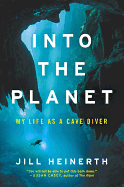
| Publisher: | Ecco | |
| Genre: | Biography & Autobiography, Earth Sciences, Personal Memoirs, Adventurers & Explorers, Science, Oceanography | |
| ISBN: | 9780062691545 | |
| Pub Date: | August 2019 | |
| Price: | $29.99 |
| Biography & Memoir |
by Jill Heinerth
"If I die, it will be in the most glorious place that nobody has ever seen." So begins explorer Jill Heinerth's fascinating Into the Planet: My Life as a Cave Diver. Heinerth's obsession with venturing toward the center of the Earth eventually brings her to the depths of an Antarctic iceberg, where "beauty contradicts the danger." A veteran of underground expeditions, Heinerth leads a National Geographic diving team into an iceberg that scientists call Godzilla.
Within that frozen world, trapped by shifting currents that could swiftly turn fatal, Heinerth finds beauty: a cave with a "turquoise ceiling," "a multi-colored shag carpet" of sea creatures covering its floor. Fish live within the smooth ice walls, in niches just large enough to provide a finger's grip, and the divers pull themselves up to safety. Hours after emerging from their potential tomb, they watch it shatter to "crystal shards," destroyed by relentless wind and waves.
In a life spent exploring underground rivers and caverns, Heinerth battles the sexism found in the male world of cave diving, struggles with her marriage to a man who shares her hunger for risk, and finds her career provides a motivation more compelling than adventure. In her journeys into the Earth, she tests equipment that will be used by astronauts, maps hidden environments that support our own and follows the subterranean odyssey of drinking water in an award-winning PBS series, The Water's Journey. Heinerth becomes a champion of "water literacy," promoting both awareness and conservation of this dwindling resource. --Janet Brown, author and former bookseller
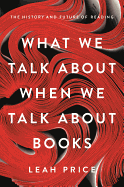
| Publisher: | Basic Books | |
| Genre: | Women, Computers, United States, Literary Criticism, Reference, Europe, 21st Century, Teaching Methods & Materials, Subjects & Themes, 20th Century, Language Arts & Disciplines, History, Modern, Science & Technology, Colonial Period (1600-1775), Computers & Technology, Civil War Period (1850-1877), Education, Reading Skills, General, Books & Reading, Information Technology | |
| ISBN: | 9780465042685 | |
| Pub Date: | August 2019 | |
| Price: | $28 |
| Reference & Writing |
by Leah Price
Video killed the radio star, goes the song. Then the bells tolled for books, victim to increasing distractibility and the digital revolution.
Actually, not so much, argues book historian Leah Price in What We Talk About When We Talk About Books: The History and Future of Reading. In the years since (and before) Nicholas Carr's 2008 Atlantic article asking "Is Google making us stupid?" literacy researchers have found ample evidence to suggest otherwise.
Price (The Anthology and the Rise of the Novel; How to Do Things with Books in Victorian Britain; Unpacking My Library) argues that a longer view of reading might ask us to more closely examine the different uses readers put texts to, not just the differences between print and digital works. She takes to task the myth of exceptionalism--contemporary readers' "sense of living through an unprecedented change"--and argues that there exists neither an "ideal reader" nor a "self-made reader."
A longtime Harvard professor and founding director of the Rutgers Book Initiative, Price is also funny, having fun with form and often infusing her extensive research with humor: "Perhaps print is to digital as Madonna is to whore: we worship one but use the other." Likening public libraries to public swimming pools, both become "testing ground for hopes and fears about civic connection."
And reading does connect us. Reading can be a luxury, a prescription, a requirement, a treat; Price's book is all of the above. As a librarian might say, check it out. --Katie Weed, freelance writer and reviewer

| Publisher: | Persea Books | |
| Genre: | Women Authors, American, General, Poetry | |
| ISBN: | 9780892554997 | |
| Pub Date: | August 2019 | |
| Price: | $15.95 |
| Starred | Poetry |
by Alexandra Teague
Alexandra Teague's third collection of poems, Or What We'll Call Desire, is a lyrical, emotional dance between high art and popular culture, mythology and history. The poet ponders love, representation, mental illness, loss and patriarchy, ultimately considering across the pages the depiction of, and the making of, a woman's form.
Everything gets folded together into layered musings both embedded in and separated from the now--snapshots of landscapes and moments in time dissected and woven into each other. Both Hedy Lamarr and Baba Yaga make appearances in Teague's reflections, as do Phryne and Ofelia. Standout selections include "The Giant Artichoke," "End Times" and "How to Become Stained Glass."
"Sketch: Charcoal and Body on Paper" seems emblematic of Teague's ability not only to capture a moment in words, but also to twist the gaze of the viewer from the objects described to the internal gaze of the speakers, and how they see themselves via the objects viewed. In this case, the objects are literally female bodies--models for a beginning drawing class. Teague (Mortal Geography) writes: "How I wanted that beauty/ that knew how not to care: let people/ stare. Let them mismeasure,/ smudge pages with charcoal, erase me." In these lines, as in many other poems, there is a process of making and unmaking in reflection that brings the reader closer to a truer sense of self. As a collection, Or What We'll Call Desire is a refreshing creation of transformative art. --Michelle Anya Anjirbag, freelance reviewer
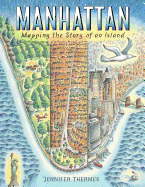
| Publisher: | Abrams | |
| Genre: | United States - State & Local, History, Juvenile Nonfiction | |
| ISBN: | 9781419736551 | |
| Pub Date: | August 2019 | |
| Price: | $19.99 |
| Starred | Children's & Young Adult |
by Jennifer Thermes
"Millions of years ago when the glaciers melted, before anything had a name, the island lay sheltered in an estuary." For thousands of years, the Lenape people lived on the island of Mannahatta, "using what they needed and nothing more." In 1609, Englishman Henry Hudson saw the island and told his Dutch employer about the land; the Dutch then claimed its southern port as their own.
So begins Jennifer Thermes's (Charles Darwin's Around-the-World Adventure) picture book history of New York City, Manhattan: Mapping the Story of an Island. Thermes gives readers a fascinating account of New York City's development from the time of the Lenape people to the present day, including information about the American Revolution, city planning, the Great Fire of 1835 and more, right up through Hurricane Sandy and "Manhattan Today." In addition to her historical text about "the city on the island," she uses sidebars, speech bubbles and notes incorporated directly into the illustrations to give supplemental information. An example: an illustration of Manhattan in the late 1700s sits on the same page as text that says it was a "time of industry, growth, and freedom. (But not for everyone.)"; an illustrated sidebar points out that "slavery continued in New York City after the American Revolution" and that "the city was rebuilt using slave labor and immigrants." Thermes's dynamic watercolor, colored pencil and ink illustrations tell as much of the story as the text, showing New York City's expansion in great detail.
Manhattan, with tons of backmatter and fun paratextual material, uses every part of the book--front cover all the way to the final endpapers--to give young readers an in-depth and entertaining history of the city on the island. --Siân Gaetano, children's and YA editor, Shelf Awareness
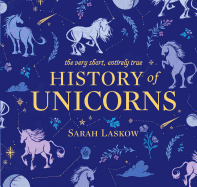
| Publisher: | Penguin Workshop | |
| Genre: | Folklore & Mythology, General, Curiosities & Wonders, History, Social Science, Juvenile Nonfiction | |
| ISBN: | 9781524792732 | |
| Pub Date: | August 2019 | |
| Price: | $12.99 |
| Children's & Young Adult |
by Sarah Laskow, illust. by Sam Beck
No matter how readers picture unicorns--majestic, pure white, horse-like creatures or cartoon characters sporting manes streaked with all the colors of the rainbow--when they open the pages of this inviting compendium they'll find plenty of fascinating, fun facts about the ever-popular magical creatures.
A Greek doctor living in Persia "more than 2300 years ago" wrote about "the existence of fantastic one-horned 'wild asses' " whose "bodies are white, their heads dark red, and their eyes dark blue." In the centuries that followed, one-horned beasts were said to resemble goats, deer and bulls. The horns themselves were reported to vary from "a foot and a half in length," to three feet, to "four feet long and spiral," until finally, "by the 1200s, some writers thought the unicorn's horn was ten feet long!"
Sarah Laskow's text provides a fine collection of information about the history of human fascination with the unicorn. A limited number of period drawings, tapestries and coins are heavily supplemented with comics artist Sam Beck's illustrations. The material brings the creature into modern times with the inclusion of more recent oddities such as Lancelot the "Living Unicorn" (which traveled with the Ringling Bros. and Barnum & Bailey circus in the late 1980s) as well as a concise survey of 21st-century cartoons, video games, emojis and memes based on the mythical beast. Foods, too, have been affected by the popularity of unicorns--Laskow even includes a recipe for "Unicorn Poop Bark." Overflowing with evidence that "people have been talking and thinking about unicorns for thousands of years," The Very Short, Entirely True History of Unicorns suggests there is every reason to expect the fascination will continue. --Lynn Becker, blogger and host of Book Talk, a monthly online discussion of children's books for SCBWI
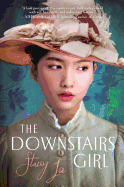
| Publisher: | Putnam | |
| Genre: | People & Places, United States - Asian American, Girls & Women, Young Adult Fiction, United States - 19th Century, Historical | |
| ISBN: | 9781524740955 | |
| Pub Date: | August 2019 | |
| Price: | $17.99 |
| Children's & Young Adult |
by Stacey Lee
As The Downstairs Girl begins, it's March of 1890, and 17-year-old narrator Jo Kuan of Atlanta needs a job to help support herself and Old Gin, who has cared for her since infancy. She reluctantly accepts employment as a lady's maid for a Nellie Oleson type who doesn't let Jo forget that she's Chinese.
Jo and Old Gin are secretly living in the basement of the Bell home, where the family publishes a progressive but financially imperiled newspaper. Jo eavesdrops on the family through a listening tube designed by the abolitionists who built the house, and one night she overhears the Bells talking about running an advice column to entice subscribers. Jo wants to help the cause--she and Old Gin will be homeless if the paper folds and the Bells must move--so she writes a column that she submits anonymously, using the pen name Miss Sweetie. Soon all of Atlanta is abuzz: Who is this Miss Sweetie who airs such forward-thinking ideas about ladies and colored people? Meanwhile, Jo has her own mystery to solve: What happened to her parents?
Stacey Lee, who also wrote the historical young-adult novels Under a Painted Sky and Outrun the Moon, has found her calling. In The Downstairs Girl, characters' conversations about newfangled inventions, like safety bicycles and electric streetcars, segue effortlessly into chatter about suffrage and segregation, the day's hot topics. But like any good historical novelist, Lee traffics in timeless themes, including first love; frets Jo at one point, "I cannot go spoony over Nathan Bell." --Nell Beram, freelance writer and YA author